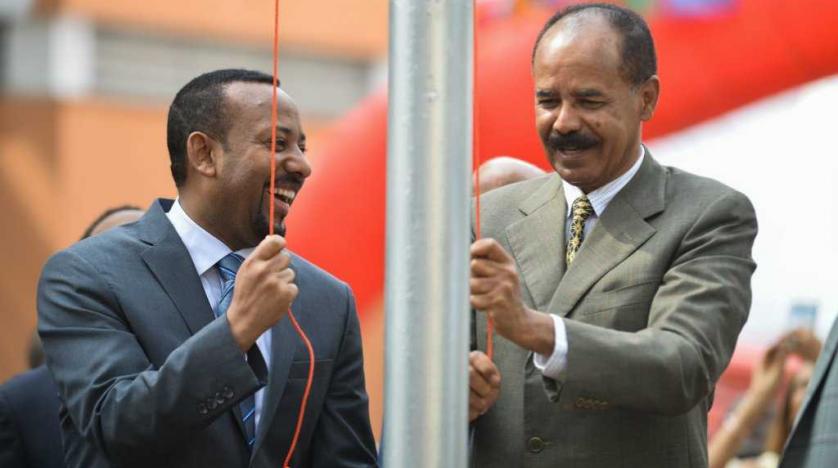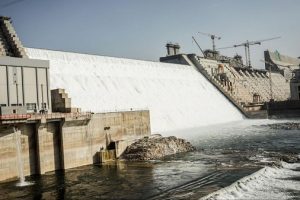
BY HAILE DEMEKE
Since assuming power in August 2018, Prime Minister Dr. Abiy Ahmed has been marching at all diplomatic frontiers and spent rosier three years that are worth-telling.
Ethiopia has been on a path of reform since 2018. The wide ranges of reforms have been so fast. In the first few months after he came to power, he lifted the state of emergency, released thousands of prisoners, allowed exiled dissidents to return home and unblocked hundreds of websites and other media outlets.
In an unprecedented manner, Premier Abiy ended a 20-year deadlock characterized by ‘no war and no peace’ scenario between Ethiopia and Eritrea winning the minds and hearts of world leaders. The peace deal with Eritrea has already had a number of positive outcomes that could contribute to regional stability. The current political reforms can be seen as part of the process of redefining Ethiopia’s role in the broader East African region and the continent.
The rapprochement has flickered a ray of hope for the world rocked by persistent conflicts and wars. With the peace deal made without a third-party intervention, the two countries reestablished relations, but the entire African continent has woken up to a new dawn of cooperation. His message of harmony and synergy also reverberated across the Horn with Eritrea and Somalia elevating their relations in to new heights no to forget Djibouti as well.
The two countries Ethiopia and Eritrea signed an agreement at a summit in Saudi Arabia, bolstering an historic peace accord. Following the peace deal between Eritrea and Ethiopia hundreds of thousands of peoples took to the street celebrating the peace accord. Eritreans could hardly contain their joy as Ethiopian Prime Minister Dr. Abiy Ahmed touched down in Asmara. The city had seen nothing like it in a generation that knew war rather than peace. Thousands of people lined up on the streets and waved Ethiopian flags as Abiy arrived to seal a peace deal.
Prime Minister Abiy Ahmed and President Isaias Afwerki have met several times to announce concrete evidence of the peace deal and further cement regional ties. Less than a week later Eritrea’s President Isaias Afwerki made a reciprocal visit, landing in Addis Ababa to an equally rapturous welcome. In September a formal treaty was signed between the two leaders in the Saudi capital, Jeddah, witnessed by King Salman and the UN Secretary General, Antonio Guterres, who described it as an “historic event.”
Reforms currently sweeping through Ethiopia under the new Prime Minister Dr. Abiy Ahmed have implications for the relationship between Ethiopia and its neighbors. The current reforms have the potential to bolster Ethiopia’s leadership role in the region. And Ethiopia that is perceived as a unifying force could lead to more stability.
After Ethiopia ended the conflict with Eritrea the Prime Minister of Ethiopia also mediated the government of Sudan and the transitional military council to reach an agreement. The government mediated the Sudan government and the Transitional Military Council (TMC). Mediators led by the AU and Ethiopia’s Prime Minister Abiy Ahmed have since been trying to broker a return to direct talks between the two sides. Sudan protesters accept Ethiopia’s plan for political transition.
Right after Ethiopia’s peace proposal, the alliance had announced its acceptance of Ethiopia’s proposal. Ethiopia has stepped up diplomatic efforts to resolve the crisis in Sudan, which has been wracked by tensions between the protest leaders and generals.
The alliance said their approval of the Ethiopian plan “pushes all the parties to bear their responsibilities” to find a peaceful solution, and urged the military council to accept the plan “in order to move the situation in Sudan” forward.
On the other hand, Kenya and Somalia have engaged in sideshow wars on diplomatic passports and recognition of the breakaway Somaliland region. Prime Minister Abiy also mediated Kenya and Somalia dispute over the issue. The PM met Presidents Uhuru Kenyatta and Mohammed Farmajo in Addis Ababa and discussed the issue.
Apart from political diplomacy, the reform reinforces regional economic integration in the Horn of Africa is another key agenda of Prime Minister Dr. Abiy Ahmed’s administration. Over the last three year, the Premier and his foreign affairs team have conducted successful diplomatic activities in the interest of the people of East Africa.
Abiy also stood shoulder high when it comes to establishing strong ties with Gulf countries bringing immense economic opportunities to his country specially in filling the coffer of hard currency, something which the country was left with empty one. With the warming up relations, some multinational companies are making their way to the country with piles of cash to invest in the country.
For long, political disorder and tension was going furry between the government and the diasporas something which damaged the reputation of the country. However, Abiy’s diplomacy was strong enough to break the walls of hatred and to build a bridge of love and synergic unity with the Diasporas. In fact, he turned the Diasporas from street protestors into vanguard reform backers. This is marvelous achievement for a country very much in need of the highly sought remittance.
He also played an active role in attracting direct foreign investments that saw multinational companies, including huge investment agreement with by the German Auto Manufacturer, Volkswagen. Of late, in what could be said the zenith of diplomatic career, Prime Minister Abiy took part in World Economic Forum where he met major global players including leaders of various countries, diplomats, investors, intellectuals and others. For his achievement, Abiy has already received honorary medal from UAE, Saudi Arabia and also made headlines on the international spotlight and made list of influential leaders by Foreign policy Magazine.
His amicable character towards politicians also changed the political landscape of the country which used to be adversarial.
The Ethiopian Herald April 2/2021



